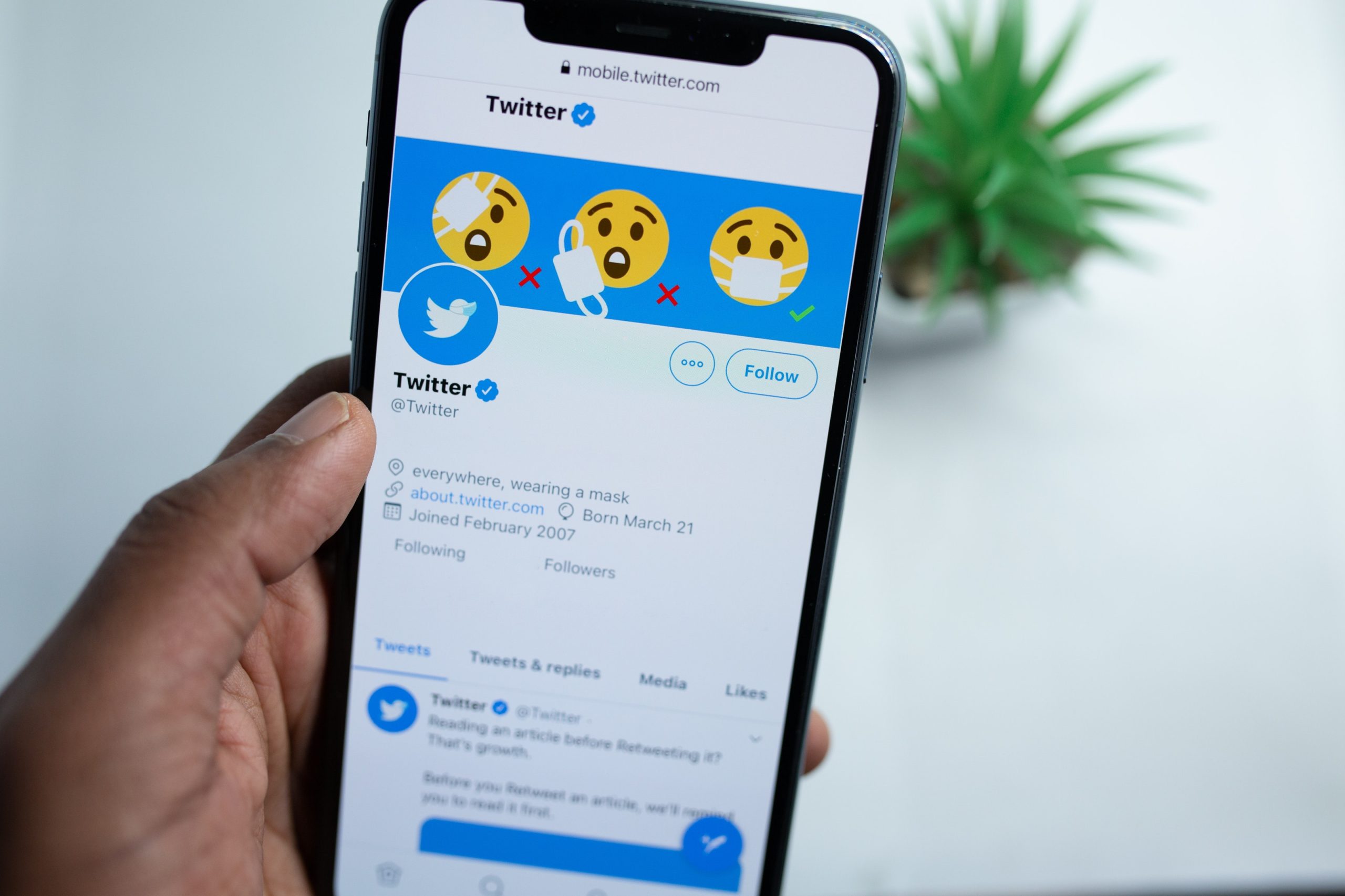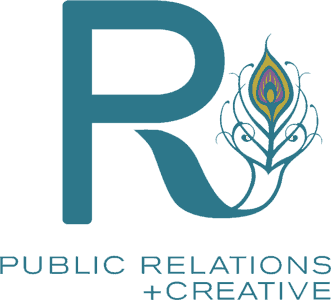PR
6 Ways to Grow Your Business Through Your Public Relations Strategies
Growth is one of the primary goals for every business. You can’t have a successful business without it. And public relations (PR) is ideal for helping to attract new customers and build loyalty among your current customers. However, those outside the PR trenches often see the discipline more narrowly, not recognizing its full potential. But PR is more than press releases. When properly executed, public relations strategies can be indispensable to your business growth. Here’s how.
Before Putting PR Into Action
Any successful PR effort begins with research, and the first step is to understand your target audience. Who are your customers? What are their needs? How can you reach them? This insight helps you effectively tailor your message and identify the best places to reach your audience.
Next, you’ll want to set specific goals to help you stay focused. For example, do you want to increase brand awareness, introduce a new product line, attract new customers, or manage a crisis? We recommend setting goals that are SMART (Specific, Measurable, Attainable, Realistic, and Timely).
This leads us right into the next bit of prep work: measuring results. Yes, you need to put a plan in place to measure results BEFORE any public relations strategies are implemented. This helps you to understand what worked well and what to improve in the future.
There are a number of ways to measure results, including tracking the number of media hits secured, the number of impressions secured, and the number of readers per month for any publication in which you’re featured. You can also use trackable links and measure how many people visit your website from each media placement. Similar tactics can be used when tracking partnership coverage and social media results as well.
Public Relations Strategies to Help Your Business Grow
Now, let’s talk about some of the public relations strategies you can use to help your business grow.
1. Establish and Maintain Media Relationships

It’s essential to not only establish relationships with members of the media but also to maintain them for your PR campaigns to be successful. As with any other business relationship, you must ensure it’s mutually beneficial and that you respect boundaries. For example, make sure you’ve done your research before contacting a journalist and pay careful attention to their preferences. You don’t want to waste their time with pitches that won’t interest them.
To maintain the relationship, engage with journalists as people, not just about what they can do for you. Ask them about their families before diving into business, or call them instead of emailing them for a more personal touch. What’s more, when your story/news has been shared, follow up with a short thank-you note or email and share the article across your social media channels.
The care and authenticity you put into the relationship will help strengthen your connection and lead to better media coverage down the line.
2. Position Executives as Thought Leaders
Thought leadership builds credibility for your brand. When those on your leadership team are considered experts within your industry, customers are more likely to trust your products and services and may be more likely to purchase from you over your competitors.
Now that you have those media connections, you can position your executives as thought leaders through interviews, offers to comment on industry-related breaking news and evergreen topics, and writing opinion pieces. What’s more, you can do this on a small scale, like pitching op-eds to local media, for example, so it’s budget-friendly too!
3. Create Compelling Content
At its heart, public relations is about sharing the right information in the right places and with the right people. That’s why knowing your audience is so important. You must create messaging that is not only relevant to your target customer but also engaging enough to catch their attention and keep it.
Consistency is also key across channels, so make sure anyone writing or speaking on behalf of your business is prepped on key talking points, preferred brand language, and tone so all content works together. A cohesive brand is a persuasive one, as your customers are more likely to trust your brand and be loyal to your business if they know what to expect from you across all channels.
And don’t forget the call to action (CTA) in your content to guide the audience in taking specific action toward your goals. It’s so simple, but you’d be surprised how many PR campaigns fall short because the audience doesn’t know what to do next!
4. Develop Partnerships

Like media relationships, well-aligned partnerships with other brands or influencers can also be mutually beneficial. However, the key is ensuring both parties have similar values and/or are working towards similar missions, or the partnership won’t feel authentic. Successful partnerships not only feel natural but will also expose both parties to new audiences and demographics.
Partnering with influencers, in particular, is one of the most effective public relations strategies to grow your business. Why? Customers are typically more likely to trust recommendations from other people than the brand itself. So, look for partnerships with thought leaders, bloggers, and other influential personalities in your niche or with values that align with your brand and endorse or promote each other’s products or services.
5. Optimize Your Online Presence
A strong online presence is one of the most powerful public relations strategies to attract new customers and build loyalty among your current customers. For example, when your business is featured in an article or you’re selected for an interview, you’ll start to be associated with certain keywords. When searchers type in these keywords, results related to your business will be more likely to show, increasing your reach among your target audience(s).
In addition, search engines like Google rely on backlinks, or links to your website from other trusted sources, to help it determine which webpages to boost when search queries are submitted. The more trustworthy backlinks you can secure, the better your website will ultimately perform.
6. Stay Active on Social Media

Social media allows two-way communication with current and potential customers in a way no other type of marketing or advertising can. That’s why using your platforms to engage with your audience is an essential public relations strategy. You’ll need to make announcements, publish, and share content. As well as interact with followers regularly to show you’re genuinely interested in connecting with your audience.
But it’s not just your customers you’ll reach on social media; many journalists follow businesses’ social media accounts to stay informed as well. So you’ll be helping to get your message in front of the media and maintaining those relationships, too. It’s all interconnected!
Need Help With Your Public Relations Strategies?
At RPR Firm, we have a team of PR professionals with the skills and experience to help you create successful public relations strategies to grow your business. Schedule a free consultation with us today.
From Print to Pixels: Embracing the Shift to Digital PR
Like other industries and professions, public relations (PR) is shifting in the ever-evolving digital landscape. Traditional PR tools, like press releases, media relations, and printed publications, are supplemented by newer digital PR tools like social media outreach and multimedia content. This transition is transforming how organizations interact with their audiences and manage their public image. Here’s how the advantages are impacting businesses and organizations that are embracing this change.
The Evolution of Digital PR
Public relations has always been about building and managing relationships with key stakeholders, including customers, investors, employees, and the media. Traditional PR methods have been built around conventional media outlets, such as newspapers, magazines, radio, and television. Companies would send press releases, pitch stories to journalists, and cultivate relationships with editors to secure media coverage. While these methods are still effective, digital public relations is evolving to include new digital tools that deliver real-time results.
The Transformation
The advent of the internet and the rise of social media platforms have dramatically changed the PR landscape. Here's how digital PR is revolutionizing the industry:
1. Instant Communication

Digital PR allows for real-time communication. Companies can react quickly to events, trends, and crises, using social media, blogs, and news websites to disseminate information instantly. This agility is crucial in today's fast-paced world, where news travels at lightning speed.
2. Targeted Messaging

Digital Public Relations provides tools for precise audience targeting. Social media advertising, content marketing, and email campaigns enable companies to reach specific demographics, ensuring their messages resonate with the right people at the right time.
3. Data-Driven Insights

Digital PR offers unparalleled access to data and analytics. PR professionals can track engagement, measure the impact of their efforts, and adjust strategies accordingly. This data-driven approach allows businesses to allocate resources more effectively and pivot quickly to adjust messaging based on data-driven results.
4. Multimedia Storytelling
Digital PR leverages the power of multimedia content to boost audience engagement. Videos, infographics, podcasts, blogs, and interactive webinars are examples of how companies can engage their audiences with compelling visuals and content that is easy to consume and share.
5. Global Reach
With the internet breaking down geographical barriers, digital PR allows organizations to reach a global audience. A well-crafted message can be seen by people worldwide, making it easier for companies to expand their reach and market their products or services internationally.
6. Direct Engagement
Social media platforms enable direct engagement with the audience. Companies can respond to comments, answer questions, and build personal connections with followers. This level of interaction helps build trust and loyalty among customers.
7. Crisis Management

In times of crisis, digital public relations is indispensable. Organizations can respond swiftly to mitigate reputational damage, share updates, and address concerns in real-time. Effective crisis management in the digital age can save a company's reputation.
How Digital PR Impacts Your Bottom Line
The shift from traditional to digital PR is not just about embracing new tools; it's about harnessing the power of modern communication to achieve better results. Here are some key advantages of digital PR:
1. Cost-Efficiency
Digital PR often requires fewer resources than traditional PR. Sending press releases via email, publishing content on social media, and running online ads are generally more cost-effective than printing brochures or buying print ad space.
2. Measurable Results
Digital PR provides tangible metrics for evaluating success. PR professionals can track website traffic, social media engagement, click-through, and conversion rates. This data helps assess the impact of PR campaigns and encourages data-driven decisions.
3. Greater Reach
The internet offers a broader and more diverse audience. Companies can reach niche markets and specific demographics with tailored content, expanding their customer base and brand awareness.
4. Enhanced Brand Storytelling
Digital platforms allow for richer storytelling. Companies can use multimedia content and storytelling techniques to create a compelling brand narrative that resonates with their audience personally to build trust.
5. Improved SEO
Digital PR is closely tied to search engine optimization (SEO). Companies can improve their search engine rankings by creating high-quality, shareable content and securing online mentions and backlinks, driving more organic website traffic.
6. Real-Time Feedback
Feedback from the audience is immediate in the digital sphere. This rapid feedback loop enables organizations to quickly refine their messaging and strategies, resulting in more effective communication.
The shift from traditional PR to digital PR is not merely a trend but a fundamental transformation of the field. Digital PR offers greater flexibility, reach, and effectiveness in a world where information travels at the speed of light. While traditional PR methods still hold value in certain contexts, adapting to the digital age is essential for staying relevant and competitive. Embracing the advantages of digital PR allows organizations to build stronger relationships with their audiences, drive engagement, and ultimately achieve their communication goals in a rapidly evolving media landscape.
At RPR Firm, we have a team of PR professionals with the skills and experience to help you navigate and embrace the shift from traditional PR to digital PR. Our company has more than 11 years of experience, allowing brands to share their stories with cutting-edge technology and tools. To learn more, schedule a free consultation with us today.
PR Essentials for New Entrepreneur: 5 Must-Know Tips
Public relations (PR) is not just for big businesses with large budgets. It is for anyone who is looking to build a sustainable business. PR can play a critical role in the success of a new entrepreneur's business. It's a strategic communication process that can help you build your brand, establish credibility, and connect with your target audience. Here are five key things every new entrepreneur needs to know about PR:
1. PR Is More Than Just Media Coverage

When many people think of PR, they think of press releases, news articles, and television interviews. While media coverage is a valuable aspect of PR, it's just one element of your communication and marketing strategy. Here are examples of effective tools in the PR toolbox:
- Media Relations
PR helps you build relationships with journalists and media outlets to secure favorable coverage.
- Content Creation
Developing compelling content like blog posts, videos, and infographics that resonate with your audience is another critical component of a strong public relations plan.
- Social Media Management
As a new entrepreneur, PR can help you use your social platforms to engage with your audience, share valuable content, and respond to feedback.
- Community Engagement
Participating in community events, sponsorships, and partnerships is another PR tactic that will help you build goodwill and trust within your community.
- Crisis Management
Public relations can help you prepare for and effectively manage crises or adverse publicity that may arise.
Understanding PR tactics will help new entrepreneurs create a well-rounded strategy that leverages multiple channels to enhance your brand's visibility and reputation.
2. New Entrepreneurs Need to Begin with a Strong Messaging Strategy
Photo Credit: VladaKarpovich | Pexels
Before diving into PR activities, you need to have a clear and consistent message about your business.
- What problem does your product or service solve?
- What sets your business apart from competitors?
- Who is your target audience, and what are their needs and preferences?
Your messaging should be concise and tailored to your audience's needs and interests. PR efforts will be more effective when built on a solid messaging foundation.
3. Relationships Are Key
PR is about more than just sending out press releases. It's about building relationships with journalists, bloggers, and influencers who can help tell your story. Take the time to research and connect with relevant media outlets and reporters in your industry. Personalized pitches and building genuine relationships can lead to better coverage.
Here are some key relationships entrepreneurs should prioritize:
- Media Contacts: Establish connections with journalists, bloggers, and influencers in your industry. Personalize your outreach and offer valuable insights to build trust and enhance your chances of getting media coverage.
- Customers: Cultivate strong relationships with your customers through excellent customer service, engagement on social media, and personalized communication.
- Industry Peers: Network with fellow entrepreneurs, industry leaders, and associations. Collaborative efforts and partnerships can boost your credibility.
- Community: Engage with your local community through events, sponsorships, and philanthropic initiatives. Positive community relations can lead to word-of-mouth referrals and goodwill.
4. Content Creation Matters

In the digital age, content is your currency. PR can help entrepreneurs create high-quality, engaging content that showcases your brand’s expertise and provides value to your target audience. As a new entrepreneur, consider making content in various formats, including:
- Blog Posts: Share informative articles that address industry trends, customer pain points, or solutions related to your product or service.
- Videos: Create video content, such as tutorials, product demonstrations, or behind-the-scenes glimpses of your business.
- Podcasts: Launch a podcast to discuss relevant industry topics and invite guest experts to broaden your reach.
- Infographics: Visual content like infographics can simplify complex information and make it shareable on social media.
- Ebooks and Whitepapers: Offer in-depth resources that provide value to your audience and demonstrate your expertise.
Reach a wider audience by distributing your content through various channels, such as your website, social media, and email newsletters.
5. Crisis Preparedness is Non-Negotiable

Be prepared for the unexpected. Crises can happen in any business, and how you handle them can impact your reputation as a new entrepreneur. To effectively manage crises, a well-rounded public relations strategy can help you:
- Develop a crisis management plan that outlines roles, responsibilities, and communication procedures.
- Be transparent and honest when addressing issues, acknowledging mistakes, and providing solutions.
- Act swiftly to contain the situation and prevent further damage.
- Learn from the experience and use it to improve your processes and prevent future crises.
PR efforts should not be a shot in the dark. Use analytics and key performance indicators (KPIs) to track the effectiveness of your PR campaigns. This could include metrics like website traffic, social media engagement, media mentions, and customer inquiries. Analyze the data and adjust your PR strategy accordingly. What works for one business may not work for another, so be flexible and pivot as needed.
As a new entrepreneur, building a positive reputation and brand awareness through PR is a long-term investment in your business's success. Don't expect overnight results. Instead, focus on consistently delivering value to your audience, nurturing relationships, and refining your messaging and content. Over time, your efforts will pay off through increased brand recognition, customer loyalty, and business growth.
Understanding these essential principles can help your new entrepreneurial venture thrive in a competitive market. And if you need advice on how to get started, we can help. At RPR, our approach focuses on creating personalized strategies that align with your goals and maintain best practices without compromising quality. Schedule a call to discuss how we can help you invest in your new venture with PR strategies that work.
Public Relations vs. Content Marketing: Which Strategy Fits Your Brand Better?
With so many opportunities for today’s businesses to share their story, figuring out which tools and strategies will serve your brand best can be challenging. Public relations (PR) and content marketing play different roles in building brand awareness and audience engagement. Is one better than the other? Here’s what you need to know about public relations and content marketing and how they work together.
Content marketing focuses on creating and distributing content to attract and engage a target audience. While it can contribute to a positive brand image, its main goal is educating, informing, and entertaining the target audience. Content marketing is often used to support broader marketing and business objectives, like driving profitable customer action, generating leads, raising brand awareness, and keeping customers.
Public relations is a strategic communication discipline focused on managing and maintaining a positive reputation for a brand, organization, or individual. PR professionals work to build and nurture relationships with various stakeholders, including the media, customers, investors, government entities, and the public. The goal of PR is to shape public perception, influence opinions, and handle crisis situations effectively.
The Changing Landscape of Brand Awareness

In the past, public relations relied heavily on newspapers, magazines, and other news outlets like television and radio to build brand presence. Today, public relations also uses new tools to develop and maintain positive brand awareness using websites, online news sources, and blogs.
Like public relations, content marketing focuses on improving business brand awareness, but content marketing uses different tactics. In today’s digital world, the lines between content marketing and PR are less defined. Both are important parts of a company’s overall marketing and communication strategy. Public relations (PR) and content marketing work together to tell a company’s story.
Public Relations Versus Content Marketing—How They Stack Up

When it comes to content marketing and public relations, it’s not a question of choosing one over the other. Your specific goals, target audience, and the nature of your business determine which tools and tactics you should use. Both public relations and content marketing have distinct advantages, and the ideal approach often involves integrating both into your overall brand strategy. Here's a breakdown of their respective strengths:
-
Public Relations
-
-
- Reputation Management: Public relations manages and enhances a brand's reputation. It can help build trust, credibility, and a positive image among stakeholders.
- Media Coverage: PR professionals have expertise in securing media coverage, which can provide third-party validation and exposure for your brand.
- Crisis Management: Public relations is essential for effectively handling and mitigating crisis situations, helping protect your brand during challenging times.
- Relationship Building: PR fosters relationships with key stakeholders, including the media, customers, investors, and government entities.
-
-
Content Marketing
-
- Targeted Audience Engagement: Content marketing is highly effective at reaching and engaging a specific target audience with tailored content that addresses their needs and interests.
- Educating and Informing: Content marketing focuses on providing valuable information and resources to your audience, positioning your brand as an authority in your industry.
- Lead Generation: It can be a potent tool for generating leads, nurturing prospects, and converting them into customers through content-driven strategies.
- Consistency and Long-Term Strategy: Content marketing is often part of a long-term strategy, focusing on consistency and creating evergreen content that retains value over time.
Content marketing is all about getting people interested in the stories a brand wants to share. Whether it's through blog posts or social media updates, it's about telling a compelling tale. On the other side, public relations is all about building relationships with writers and journalists who spread the word about the brand. PR helps you build your brand’s reputation.
They meet in the middle with storytelling. Both traditional and digital PR can support content marketing by getting a brand's stories and content into the hands of influential writers and journalists. When that happens, it's like giving your content a boost, and it’s more likely to grab attention, go viral, make more people aware of the brand, and drive audience engagement.
Integration Is Key

While public relations and content marketing have distinct advantages, they are not mutually exclusive. They often work best when they are integrated into one comprehensive strategy. Here's why:
- Enhanced Credibility: Combining PR's media coverage with content marketing's educational content can establish your brand as credible and authoritative.
- Content Amplification: PR can help amplify your content by securing media placements for your articles, blog posts, or videos, expanding your reach.
- Storytelling Synergy: Both PR and content marketing rely on storytelling. When integrated, they can create a consistent narrative that resonates with your audience.
- Crisis Communication: During a crisis, a well-planned content strategy can support PR efforts by providing precise and accurate information to the public.
The bottom line is you need both. Ultimately, the choice between public relations and content marketing depends on your specific goals and the stage of your business. In many cases, a balanced approach that leverages the strengths of both disciplines is the most effective strategy. Remember that the key is not which one comes out on top but how they can complement each other to achieve your overall marketing and communication objectives.
Are you seeking strategies to increase brand awareness using public relations and content marketing? Then schedule a consultation with us today and let our experts at RPR show you how to get the most out of a well-integrated campaign that includes both PR and content marketing.
From Unknown to Unstoppable: How a PR Firm Can Transform Your Business
Recently, the “Barbie” movie smashed media expectations with a record $155 million on opening day to become the year's biggest debut. The success is attributed to disruptive PR and marketing activities ranging from pop-ups, themed Airbnbs and Xbox consoles, and other partnerships.
The movie’s success exemplifies what PR can do for your business. However, you need an experienced team to achieve these results. The blockbuster PR team created a campaign that generated lots of social media buzz, giving a child's doll remarkable acceptance by adults. While everyone will focus on the revenue, the movie’s success showcases how PR firms can help transform your business from unknown to unstoppable in many ways.
In this article, you will learn what a PR firm is, its role, and how PR can help you build a formidable business.
What's a PR Firm?
A PR firm assembles people and tools to create a campaign strategy to help you achieve your business goals. Unlike in-house PR teams, an agency can work with multiple businesses simultaneously thanks to its industry expertise and strong relations with the media.
What Does A PR Firm Do?
A PR firm supports your business growth through services that include the following.
- Crisis management
- Customer research
- Monitoring trends and brand mentions
- Managing social media and communications
- Managing investor relations
- Pitching
- Media Relations
- Content marketing and SEO
- Writing press release
- Securing media coverage
How Can a PR Firm Transform Your Business?
A PR firm can help you create brand awareness and build authority through a series of well-crafted strategies and methods such as:
1. Crafting a Compelling Brand Story
According to Headstream research, 55% of consumers will consider buying from a brand in the future if they love their story. Brand storytelling helps to humanize your business, fostering customer connection on an emotional level. An example of the impact of storytelling is evident in Steve Jobs's Apple product launch speech. In 2003, he persuaded users to pay 99 cents per song on the iTunes store by presenting a solid argument that triggered listeners' emotions. In the same way, a PR firm studies your products, analyzes the target audience, and creates a compelling story that helps them imagine the transformation you offer. The outcome is often improved brand loyalty, word-of-mouth marketing, and customer advocacy, amongst other benefits.
2. Creating and Deploying Crisis Management Plans

According to a PWC survey, 96% of businesses experienced a crisis in the last two years, and 76% had a medium-to-high impact on operations. A well-crafted crisis management plan helps you to respond to disruption and maintain your brand reputation quickly. Without crisis management PR, your business might struggle to get back on its feet after a negative public occurrence. A PR firm creates PR plans that integrate employee, consumer, and stakeholder communication to convey the brand's position, plans for fixing the issue, and regular updates. That way, you control the narrative and win public trust. The PR firm also ensures this plan is effectively deployed using different channels. These include social media, press releases, executive interviews, and many more. If perfectly executed, you can turn a crisis into a growth opportunity for your business.
3. Securing Media Coverage

Journalists are often inundated with pitches from different businesses. Therefore, getting their attention might take time. However, PR agencies can help you get media coverage thanks to existing relationships with journalists. One of the roles of a PR firm is building relationships with the media, which comes in handy when they manage your campaign. A PR firm will know the best media channels, the types of stories they accept, and how best to pitch your business. Their relationship helps you save costs on pitching to the wrong platforms and can quickly get your news out to the right audience. A successful interview or press release can go viral, generating massive traffic and sales for your business.
4. Creating Effective Campaigns

PR firms understand the elements of an effective campaign thanks to experience working on different projects. They also have expertise in campaign strategy creation, like design, copywriting, and SEO. This unique experience helps them to create effective campaigns fast without multiple trials. Whether it's a product launch, announcement, or rebranding campaign, you can expect strong performance and ROI.
5. Monitoring Industry Trends for Media Opportunities
Daily, we experience new trends, which can offer opportunities for visibility. A PR firm uses analytics and PR tools to monitor trends and identify which one to leverage. Subsequently, they can create a campaign around that topic to build awareness. Monitoring these trends helps you drive more traffic and sales to your business. With more visibility comes improved customer engagement, retention, and overall growth
Partner with a PR Firm to Grow Your Business

PR offers multiple benefits when in experienced hands. Collaborating with a reputable PR firm allows you to experience PR benefits such as building brand awareness, boosting organic traffic, and improving sales conversion. With RPR Firm as your partner, you will get personalized strategies, access to our expert network, and creative content to increase campaign results. Schedule a free consultation with us to start your journey from unknown to unstoppable.
What is a Boutique PR Agency? Is It Worth Investing?
Did you know small and medium businesses (SMBs) make up 99.9% of all U.S. businesses? This explosive growth of SMBs has resulted in higher demand for specialized public relations services that understand their unique challenges and opportunities.
Entering the fold are boutique PR agencies—agile, specialized firms that provide tailored services specifically designed to cater to the unique needs of their clients.
As we delve deeper into the world of boutique PR agencies in this article, we'll examine their distinct characteristics and help you determine whether such an investment aligns with your business goals. Ready to learn more? Let's explore together.
What is a Boutique PR Agency?
Boutique PR agencies are small, compact teams of specialized professionals striving to achieve optimal client results. They often deploy comprehensive strategies such as media outreach, content marketing, and more. Typically a small and structured team, boutique agencies hold a niche focus for public relations. They differ from full-service firms that provide general PR services across a range of industries.
What Does a Boutique PR Agency Do?

A boutique PR agency has experts who can offer full-service public relations in particular industries or business types, such as SMBs. Ideally, this involves:
- Content marketing: Creating and publishing thought leadership articles and op-eds in reputable media outlets.
- Community relations: Securing opportunities to support community projects and build goodwill with the target audience.
- Media monitoring: Identifying negative posts about your company and crafting a plan to mitigate the effects.
- Media training and representation: Training spokespeople on how to give professional media interviews that convey crucial messages accurately.
- Crisis management services: Handling controversies that can hurt public confidence in your company.
- PR campaign creation: Creating a campaign that targets influencers, media outlets, journalists, and social media to enhance brand reputation.
Why Should You Hire a Boutique PR Agency?
Hiring a boutique PR agency is a partnership. It offers direct access to the team, and you are part of the PR process. Let's explore other benefits.
1. Access to a Versatile Small Expert Team
Boutique PR agencies typically have a small but versatile team of five to ten members with a deep understanding of your industry. This knowledge diversity allows each member to complement each other for effective results. Moreover, these agencies often focus on a specific niche, so you benefit from working with domain experts who see your business as a partner.
2. Personalized and Attentive Service
With a smaller client base, boutique PR firms can prioritize each client and provide personalized and attentive services. They invest time in understanding your business, industry, and target audience to create strategies that align with your needs. More often than not, you'll work with the same individuals throughout the project, fostering synergy and better performance.
3. Cost-effective PR Services
In contrast to large PR firms, boutique agencies typically charge lower fees. According to a Sortlist article, you could potentially hire a boutique agency for as low as $5,000, while larger PR agencies may charge upwards of $25,000 for a monthly retainer. Therefore, partnering with a boutique PR agency could be a viable solution if budget constraints exist.
4. Flexibility
Boutique PR firms are agile, capable of responding swiftly to changes in trends and capitalizing on new opportunities. Their small client base and versatile team offer a unique advantage to establish your business authority and increase awareness faster, giving you a competitive edge.
5. Enhanced Communication and Transparency
One of the hallmarks of boutique PR agencies is the direct access they offer to their team and even the CEO, ensuring clear, timely communication and transparency throughout the PR process.
Critical Considerations Before Investing in a Boutique PR Agency
Several factors need careful consideration before a boutique PR agency investment. For instance, it’s essential to understand the budget implications. As we stated earlier, boutique agencies often offer more competitive pricing than larger firms, but the exact costs can depend on your specific needs.
Additionally, assessing the scope of work and the agency's capacity to handle the project is crucial, as boutique agencies may face limitations in scalability.
Finally, evaluating the agency's reputation and track record, including past clients and case studies, can provide a clearer picture of its capabilities and results.
How to Know if You Need a Boutique PR Firm

Your business might need a boutique PR firm if you want to:
- Improve brand awareness and reputation to break into new markets.
- Get customized PR solutions that align with a business goal with a limited budget.
- Access senior-level experts with domain experience in your industry.
- Stand out from your competitors with a creative and innovative PR strategy.
- Work with a flexible and agile PR team that can adapt to trends and opportunities.
How to Find the Best Boutique PR Agency for Your Business
You can avoid losing money and time by following these simple processes:
- Clearly define your business PR goals and objectives.
- Research and compare agencies based on relevant experience and services.
- Request proposals and pitches from top candidates from the research.
- Evaluate proposals to identify the feasibility of their offers.
- Interview successful agencies to understand their principles and process.
- Reach out to past clients of the agency to get more information.
- Sign a contract and request project details.
Should You Invest in a Boutique PR Agency?

The value of investing in a boutique PR agency becomes evident when weighing the benefits and considerations presented. Their personalized, cost-effective services, targeted expertise, and flexibility are notable advantages for small businesses or niche sectors.
However, it's essential to align your specific needs, budget, and goals with the capabilities of a boutique agency. While they can provide unparalleled, dedicated service, the potential limitations regarding scalability or broad-ranging PR requirements are worth noting.
Therefore, making a well-informed decision that suits your unique business objectives best is imperative. Remember, the decision ultimately hinges on your business needs and the PR agency's capacity to meet those needs effectively. Be sure to undertake thorough research and due diligence before making your investment.
Are you ready to unlock the benefit of working with a boutique PR agency to grow your business? Schedule a call to see who we can help you achieve exceptional growth with PR.
The Ultimate Guide on How to Hire a PR Agency in 2023
Outsourcing PR activities is the best option if you own a small business and need to break into new markets. Not only does it save time, but it also enables you to get the best results faster while you focus on building a unique product. However, the sheer number of PR agencies promising different results can make the hiring process daunting. In this article, you will learn everything you need to hire a PR agency in 2023, including the types, costs, and questions to ask when interviewing firms.
How to Hire a PR Agency in 2023
Here are steps to prioritize if you want to hire a PR firm in 2023 without making costly mistakes
Set Clear Objectives that Align with Business Goals
Many PR campaigns fail due to a lack of direction. You hire a PR agency because your competitor has one, and you try to replicate their tactics without considering how it affects your goals. That's a remedy for disaster, and you won't get the right results, especially if you hire a PR company that's only interested in the pay and not your business. To avoid this, you must first set clear objectives that align with business goals. For example, if your marketing goal for the first quarter is to reach 1 million people, your PR tactics will involve media publications, guest blogging, and other awareness-based strategies. This way, you can easily track key performance indicators and identify if your PR firm is getting the right results.
8 PR Campaign KPI to Prioritize
- Sentiment
- Share of voice
- Earned media value
- Media impact score
- Relevance index
- Key message penetration
- Quality of coverage
- Social engagement
Create a Budget that Aligns with Your Objectives

When setting your budget, consider your in-house PR workforce, business goals, and the type of PR firm you need. A full-service PR company might cost more than a crisis management firm. Consider this as they guide you in choosing the best PR firm for your business.
What's the Cost of Hiring a PR Firm in 2023?
According to the Clutch PR pricing 2023 report, you can hire a public relation service company for a $100- $150 hourly rate. However, larger PR agencies might charge up to $500 hourly. In contrast, retainer PR agencies might charge between $1500 to $10,000 monthly. You can also expect larger PR firms to charge up to $25,000 monthly.
Research PR Firms
With your clear objectives and budget, you should research a PR agency that meets your requirements. Your goals will guide you in choosing the right PR services and type of agency. You should ask for recommendations from friends, check review websites, and read reviews from forums or the PR marketplace. Select your best 10 PR agencies and schedule a consultation interview to get more information and see if they are a good fit for your company.
Types of PR Firms and Their Services

Here is a list of different types of PR agencies and the Services they render
- General strategic communications PR agency focuses on all aspects of business PR strategy. Services include reputation management, brand awareness, media relations, internal communications, speech writing, crisis communications, investor relations, and more.
- Press communication PR agency handles all strategies to improve media relations. Services include outreach, pitch writing, securing media coverage, interviews, and more.
- Crisis communication PR firm focuses on creating and implementing crisis management plans. Services include risk planning and mitigation, crisis communications planning, crisis PR training, strategic counsel, and on-site crisis management support.
- Internal communications focus on disseminating information within the organization. Services include newsletters, announcements, training guides, policies, and procedures.
- Investor Relations PR company facilitates effective communication between executive leadership and investor stakeholders. Services include conducting reputation audits, running reputation campaigns, strategic communications, and coordinating investor day events and announcements.
- Reputation management PR agency handles all strategies to improve brand perception in the media. Services include web monitoring, training, content marketing campaigns, strategic messaging, negative content suppression, and social media reputation management.
Interview Qualified PR Firms

Gather information about the PR agencies by asking strategic questions. The interview will help you understand their ideology, strategy, experience, and values. Consider agencies whose values align with yours and foster seamless communication. This will go a long way in building effective bonds that turn them from just an agency to a partner dedicated to your business growth.
Questions to ask During an interview
Here's a list of questions to ask during the interview
- Do they specialize in your industry?
- How will the firm get you media coverage?
- What's their pricing plan and cost?
- How do they measure success?
- How will they work with your marketing team?
- What should you expect in the first three months?
- Can you reach out to their previous clients to get more information?
- Will they assign an account manager to your business?
- Do they offer marketing and sales services too?
Onboard PR Firm
After the interview, review all proposals and strategies and decide the best-fit PR company.
Contact your choice agency and sign the contract details. You should also set clear expectations so you are on the same page before work commences. Provide the PR firm with relevant information and documents to enable them to understand your business. It's also important to set strict communication channels and plans for effective collaboration.
Partner with the Best PR Agency for Business Growth
At RPR, our services integrate customer research to identify critical issues and customer behavior, enabling us to create an effective PR strategy for your business.
Schedule a free consultation today to partner with us for strategic growth.
Can a PR Firm Deliver Fast Results?
Have you ever been advised to hire a PR agency if you want to boost your brand awareness, reputation, or sales with fast results? But how realistic can this be, and what do fast results mean in PR? In this article, we will explore the concept of fast results in PR and how they can vary depending on your business goals and expectations. We will also discuss the factors that can influence the speed and quality of PR results to give you a better understanding of what PR can do for your business. Finally, you will learn how to get the best results from working with a PR agency.
What Do Fast Results Mean in PR?
In simple terms, fast results in PR are defined by positive performance based on selected goals within the agreed-upon contract duration. These business goals vary for different brands; they can be short-term, mid-term, or long-term goals. A fast result for short-term goals might be within the first 30 days of deploying your campaign, for example. In PR, effectiveness and timely delivery count more, not necessarily the speed of results.
How Long Does It Take for Public Relations to Work?

As a professional PR agency, we have worked with many brands to generate profitable results based on selected business goals. We have had clients get results from PR activities within three months to 12 months. Depending on your PR readiness, campaign history, business goals, and industry, this timeline might vary for your business.
For example, a PR campaign built on a short-term goal of creating awareness could start showing results two to three months into execution. In most cases, you can start seeing results in the first month.
Midterm and long-term PR goals should take four to nine months before you start noticing tangible results. However, the proactiveness and expertise of the agency also contribute to the results' timeline, so it's best to hire a professional PR team with industry experience and up-to-date tools.
4 Factors That Can Influence the Speed and Quality of PR Results
The speed of PR results will vary depending on internal and external factors. For example, campaigns launched around the time of Queen Elizabeth's death will have had less public traction based on the importance of that event. Natural occurrences like this can happen anytime and might derail the traction of your PR campaign performance. However, there are certain factors within your control. We highlight them below:
1. Cooperation and Responsiveness

When you hire a PR agency, that's just the beginning of the process. You cannot expect PR agencies to perform magic when you don't communicate your goals, share data from past campaigns, or respond to interview requests. A PR agency can only deliver results fast when you provide relevant information to help them understand your business. This will reduce the time spent researching your business, and creating a strategy and other essential assets to aid successful campaign creation.
2. Existing Brand Reputation and Perception
If you were scrolling through social media and saw multiple ads from fashion brands, which would you choose? An entirely unfamiliar ad or one from a brand you recognize? That's how PR campaign results work, too. If your brand has a good reputation and a loyal customer base, you will have a lesser barrier of entry than a business without these assets.
3. Scope and Complexity of the PR Campaign
The speed and kind of results you get from a PR campaign can depend on several things. For instance, think about how intricate your campaign is—more complex ones might take a bit longer to start seeing results. The tools you need for the campaign also play a part. If they're unfamiliar to your team or require a lot of training, that might slow things down.
Also, what you're aiming to achieve with the campaign matters. You might not see an immediate impact if you have big, ambitious, long-term goals. Conversely, if you're focused on smaller, short-term objectives, you might see results quickly.
Lastly, who you're trying to reach plays a role too. If you're targeting a large audience, getting your message across might take longer. However, the payoff could be worth the wait.
For example, a simple PR campaign will take less time to create than one requiring AR / VR technology integration to deliver a message. Is the PR campaign built around a long-term goal? Does it need feature collaborators or third-party tools? These questions can help you determine the scope and complexity of your campaigns for better PR strategy development.
4. PR Agency Clarity of Objectives and KPIs
Sometimes, your PR agency might struggle with understanding the objectives and KPIs for your campaign. This is often the case when you haven't clearly stated your brand goals. If you don't have SMART PR goals, you could get poor results or focus on the wrong metrics, which will mean dedicating more time to rework to get quantifiable results.
How to Get the Best Results from Working with a PR Agency

Ideally, a PR agency should deliver good results within an agreed-upon timeline. However, business progress isn't always linear. Here are some tips to ensure you get the best results when working with a PR agency:
- Provide relevant documents and information about your business
- Set clear PR goals, objectives, and relevant KPIs
- Adopt clear communication and a collaborative approach
- Be responsive and available when needed
- Be authentic, transparent, and honest with the PR agency about business activities
- Treat the agency as a partner and be receptive to their ideas
Are you ready to improve PR results with personalized strategies delivered by professionals? Schedule a call with RPR experts today to get PR solutions tailored to your business needs.
Building Successful Campaigns for Maximum PR Success
Mary owns a B2B fashion brand and has struggled to build brand awareness in the highly competitive fashion industry. She researched possible solutions and found public relations (PR) highly recommended by top marketers. Next, she set out to build a successful PR campaign to increase brand awareness, generate leads, and secure media coverage in reputable publications.
However, like many B2B companies, she struggled with creating and executing effective PR strategies that deliver results. She discovered that effective campaign PR was more than publishing press releases; she had to identify target audience pain points, create compelling stories, pitch to journalists to get media coverage, implement strategic content distribution, and track campaign performance.
Trying to make sense of all these moving parts was overwhelming, leaving her confused about what to prioritize and how to start.
Do you relate to Mary's challenge? Are you looking to implement a PR campaign for business growth but are unsure how to get the best results? This article covers all you need to create and execute a successful campaign for maximum PR success.
Defining a Successful Public Relations Campaign
A successful PR campaign has different definitions based on your business goals and expectations. For example, using Mary's business illustration, a successful campaign will deliver a compelling message that helps to build a connection with the target audience, which improves brand awareness. But most importantly, it must meet that campaign's set key performance indicators (KPI).
How Do You Make a PR Campaign Successful?
If Mary reaches out to us at RPR Firm to help her build a successful PR campaign, here are some steps we will follow.
1. Identify the Business Needs

To create a successful campaign, you must first identify the business need prompting it—identifying "why" will help you create a SMART goal, key performance metrics to track, your distribution channels, and whom it will target.
2. Segment the Target Audience

In most cases, your business has different customer segments in its target audience population. Each segment has specific challenges and messaging that will work for a campaign. You must identify the segment you want to target, their pain points, and how solving them helps achieve a bigger marketing goal. This part is often the secret to creating an effective PR campaign strategy. The information you gather from this process will help you create personalized messaging and get better results than sending out a generic campaign to everyone.
3. Create a Compelling Message Tailored to the Target Segment
When creating a campaign, it must speak directly to your target. Effective PR campaign messaging will use the audience's language and how they describe their challenge to paint a picture of the transformation they can achieve with your product. You can create a compelling message using the storytelling framework that walks your customers through a journey from point A to B. It should capture the target audience's pain points, challenges, and goals. As well as, clearly explain how your product can help them overcome them.
4. Develop a PR Campaign Distribution Strategy
Choosing the right distribution channels helps you to reach a wider audience with impactful performance. You should create a strategy that covers content types, distribution frequency, methods, and channels that are relevant to your audience. This will help create an organized approach. You will also have real-time data from each channel to refine your strategy.
5. Track Results and Refine PR Activities

You can track campaign performance in real-time thanks to data-driven PR tools. Like Google Analytics, Hotjar, Mention, Google Alerts, and social media analytics. Tracking performance will allow you to refine key strategy elements based on audience engagement to deliver a better experience. Ultimately, your campaign will evolve and deliver better results than if it runs without tracking results.
5 Proven PR Campaign Strategies for Maximum Success
Here are some strategies you can implement to achieve PR campaign success.
- Generate leads through targeted email campaigns and social media promotion like Cheetos' Snap to Steal Snapchat campaign.
- Invest in content marketing to produce engaging content highlighting your solutions and customer success stories like Salesforce's Room $ Board company showcase.
- Develop a thought leadership program that positions your brand as an expert and influencer in the industry, like Siemens A New Space Race.
- Use PR storytelling to craft a compelling message that showcases your unique solutions while creating positive brand associations like Dove's #theselfietalk.
- Partner with influencers to create buzz-worthy campaigns like the ALS Ice Bucket Campaign that featured Bill Gates and other celebrities.
Partner With Professionals for PR Success

Merging the many moving parts in creating effective PR campaigns can be overwhelming for new businesses. However, following a structured process that involves identifying your business needs and target audience, crafting compelling messages, and tracking performance will improve your PR results.
Don't let the complexities of PR campaigns slow your business growth. With RPR Firm, you'll have a dedicated team of seasoned professionals committed to navigating these challenges and driving your business to new heights.
Contact us today, and let's start crafting a successful PR strategy tailored to your brand!
How To Approach PR as a Startup in 2023
Are you a startup founder looking to integrate PR into your overall marketing strategy? Treating PR as an integral element of your comprehensive success strategy is essential. Much like meticulous product development, your PR process should be strategic, agile, and clearly defined—emphasizing building relationships and setting realistic expectations. As a seasoned PR agency, RPR Firm has spearheaded numerous small businesses' successful PR initiatives.
This article reveals our tried-and-true approach, offering you the keys to navigating PR as a startup and ensuring a successful journey in 2023.
Startup PR in 2023
The PR industry is evolving, and some old rules no longer apply. If you want to achieve successful PR as a startup in 2023, here are a few tips on approaching it.
Start With a Clearly Defined PR Strategy
The startup workflow is often fast-paced and disorganized, so it's easy to pick a random PR approach as your strategy. Most businesses make this mistake, and it's often the fastest route to failure in implementing PR for a startup. A strategy is not just a nice-to-have; it's essential in guiding your campaign tactics and performance. When creating your strategy, it should include key elements like:
- SMART PR goals that align with business plans
- Clear objectives
- Ideal target audience descriptions
- Media relations and outreach
- Key performance indicators (KPIs)
- Key messages and positioning
- Crisis communication plan
- Content marketing strategy
- Employee's roles and responsibilities
- Measurement and evaluation
Each section should always answer the question, "Does this help us achieve our main business goals?" For example, if your business goal for the year is $10,000 in online sales, including customer success stories in content marketing activities will help more than using employee success stories.
Be Realistic With Your PR Performance Expectations

Many startup founders mistakenly view PR as a quick fix for rapid business growth. Although you can achieve viral content status, it's often not as frequent and may never happen for many businesses. As a startup, setting realistic PR expectations is crucial. Also, you need to understand that results may vary. For example, you may publish a product launch press release and expect it to get wide coverage. However, an unplanned global event hits the media the same day and takes all the attention away from your product launch or announcement. This is just one example of what could happen, so always set your expectations realistically and allow the PR team to function effectively.
Prioritize Building Relationships with Media and Journalists

You should cultivate genuine relationships with journalists and media personnel in your industry. It's easier to get media coverage when there's an existing interaction, and they understand your business and offers. Start by creating a list of journalists and media outlets covering your industry. Once completed, you can create personalized messages and pitch to start a conversation. This will allow you to build a connection and share your unique business story, angle, and insights for better media coverage.
Adopt a Multi-Channel PR Strategy
In the past, public relations was almost synonymous to press release distribution. However, times are changing, and you have podcasts, social media, content marketing, online events, influencer marketing, and many more PR channels at your disposal. Identify the best ones for your target audience and invest in them. There's nothing like too much attention if it's coming from the right audience. A multi-channel approach also helps you to experiment and identify the best-performing options within a short period.
Embrace PR as an Organization Initiative and Not just a Marketing Tool
Many startups use PR mainly for sales, highlighting product features and solutions. However, they often neglect to promote their company culture, ideas, and authentic story. This is often a result of creating a PR strategy that doesn't involve the organization as a moving part. In the long run, you might struggle with building a connection with your audience because your focus is on selling and less on telling a story that’s relevant to your target audience. However, treating your PR as a company initiative allows you to tell authentic stories that involve stakeholders and employees in your PR activities. For example, when you approach PR as a company initiative, you prioritize collaboration between HR and PR to create effective strategies for attracting top talent and retaining employees. When customers see that the product is made by real people, with real stores and challenges, they will connect better with your solutions.
Data-Driven PR is a Necessity
For startup PR success, tracking performance across all channels, campaigns, and brand mentions is indispensable. Invest in tools that can monitor key metrics such as media mentions, website traffic, social media engagement, and lead generation. The data from PR analytics tools like Google Analytics will help you.
- Understand audience behavior across multiple touchpoints
- Identify effective communication channels and tactics
- Create targeted messaging and personalization strategies
- Measure PR Impact
- Implement proactive crisis management
With this information, you can consistently refine your PR as a startup to achieve even better results.
Hire PR Professionals with Industry Experience

Whether you choose to build an in-house PR team or engage a PR agency, experience working with startups should be a must. Expertise in your industry is also important for implementing PR as a startup to avoid costly trial and error. For example, at RPR Firm, we are well-versed in helping startup lifestyle brands grow their businesses using PR strategies. Our approach focuses on creating personalized strategies that align with your goals and maintain best practices without compromising quality. Schedule a call to discuss how we can help your startup do PR the right way.










